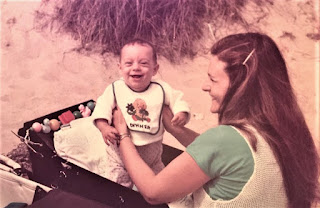
Selected articles,information, parenting tips, character building, skils, everything about raising & teaching children without or with special educational needs.
Pages
Saturday, December 26, 2020
Tips to foster a happy holiday season for children with autism during the COVID-19 pandemic

Monday, November 23, 2020
Face Masks And Hearing Loss In School: How To Support Your Child

For children with hearing loss, this year has created new challenges in the classroom. First there was the switch to online learning, and now as some schools return to in-person teaching, a new challenge has emerged: Face masks and hearing loss.
Masks prevent lip reading, restrict visual cues and even dampen speech transmitted from the mouth. All of this can make listening harder for children with hearing loss and cochlear implants. Here are some ways you and your child’s teacher can help support their listening experience.
Saturday, November 14, 2020
11 Ways to Make Your Autistic Child's Life Easier
 Loving that autistic child of yours with all your
heart is a wonderful, precious experience. If you’re not autistic yourself,
though, even the purest love won't help you understand how being autistic affects
your child’s body, their senses, and how they interact with the world.
Loving that autistic child of yours with all your
heart is a wonderful, precious experience. If you’re not autistic yourself,
though, even the purest love won't help you understand how being autistic affects
your child’s body, their senses, and how they interact with the world.
You don't want to inadvertently make your beloved child's life harder than it has to be, so please consider the advice below -- advice I’ve gleaned about autistic experiences, gathered during twelve years of listening to autistic people, professionals, and parents. Some of these factors are common knowledge in autism communities and circles, but others are really not talked about enough, and every last one bears repeating.
Thursday, October 8, 2020
Tips to Help Children with Autism Wear Face Masks

COVID-19 has led to many changes in daily life and routine. From “sheltering in place” to social distancing to wearing a face mask, it is a lot for anyone to absorb. These changes in routine can be especially challenging for children with autism spectrum disorder (ASD).
Sunday, October 4, 2020
Behavioral problems and Down Syndrome

Behavior can sometimes be a concern for families. Please remember that there are no behavioral problems unique to Down Syndrome and most children with Down Syndrome are capable of behaving in an age-appropriate way.
Here are some practical tips to help you support your child to behave well:
Wednesday, September 9, 2020
Help Your Students Adapt to COVID-19 Safety Guidelines in the Classroom
 Returning to the classroom in Fall 2020 will be
a challenge for both teachers and students. Here are some tips and questions to
consider for maintaining COVID-19 safety guidelines in your classroom this
year.
Returning to the classroom in Fall 2020 will be
a challenge for both teachers and students. Here are some tips and questions to
consider for maintaining COVID-19 safety guidelines in your classroom this
year.




